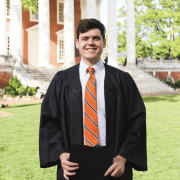Myla and Hailey Barnett: Paving the Way for Black Athletes in ‘Non-Traditional Sports’

Representation matters.
When you set a goal, it is important to have a role model you can relate to - someone who has been successful achieving a similar goal to help you envision yourself succeeding as well.
For young Black athletes, it is difficult to imagine themselves being successful in certain sports that do not have a history of Black participation. While there are many Black athletes who play sports like football, basketball, and track, there is a severe lack of diversity in several other so-called ‘non-traditional’ sports such as baseball, hockey, tennis, gymnastics, lacrosse - the list goes on and on.
As Black athletes have begun to break through and become superstars in these sports, we are beginning to see positive change as more and more young Black athletes begin to follow in the footsteps of these pioneers and attempt to have careers in sports that have been historically dominated by white people.
The example of Serena and Venus Williams has cleared the path for new tennis stars like Coco Gauff. Simone Biles, who was inspired by the success of Gabby Douglas, has paved the way for young Black gymnasts.
These individuals have blazed the trail for Black athletes to succeed in non-traditional sports, of which there are still far too many with far too little diversity. Two sports that still have a significant lack of diversity are lacrosse and rowing. At the University of Virginia, two athletes are doing their best to change the norm.
Myla and Hailey Barnett are fraternal twins. They are also varsity student-athletes at the University of Virginia. Myla is on the UVA women’s lacrosse team and Hailey is part of the Varsity Eight UVA rowing team.
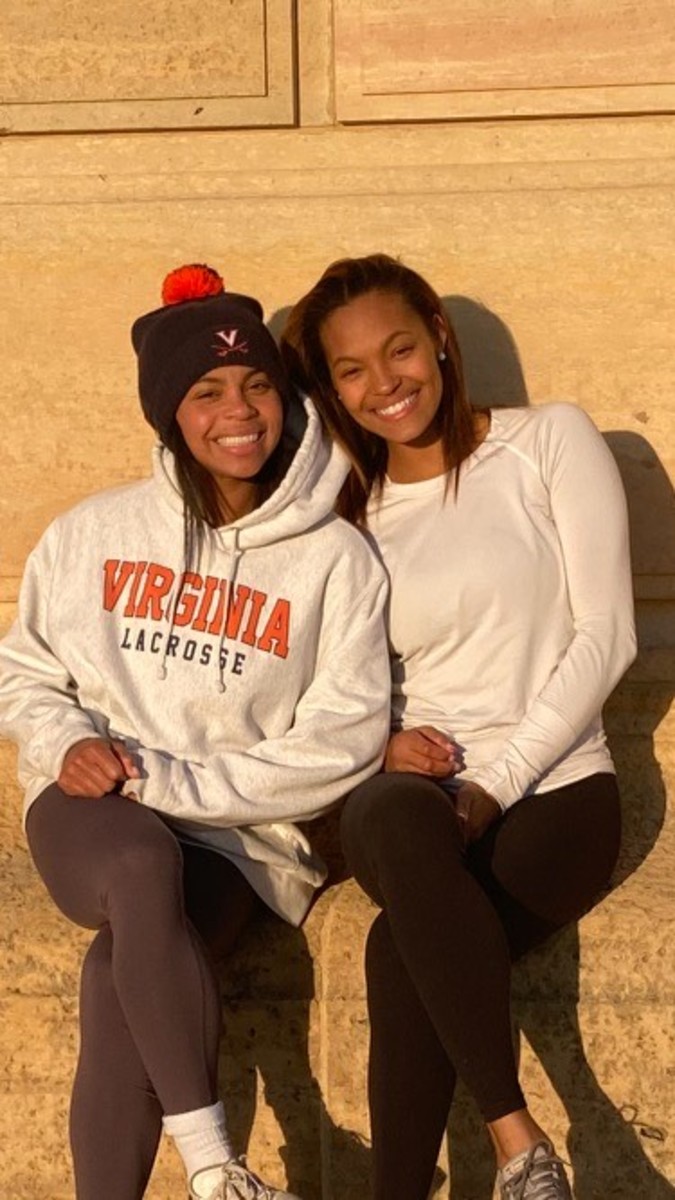
While it may seem inevitable that twin sisters managing to end up playing two different Division I sports at the same school was the product of some elaborate plan, it was actually a happy accident.
Attending the same school was never a priority for the Barnett sisters - it just worked out that way.
“We never had even really talked about going to the same school,” says Hailey Barnett. “Just because we're so different. We have a lot in common, but we have a lot of differences as well.”
Growing up on the Philadelphia Main Line, there were not many sports that Myla and Hailey did not at least try to play.
Myla did gymnastics and tried volleyball and basketball, before finding lacrosse in sixth grade. Hailey tried lacrosse as well, but discovered a love for rowing in seventh grade. Both Myla and Hailey also did cross country and swimming in their childhood.
“Myla and I both got into sports at a very young age,” said Hailey. “We tried a lot of different sports, but our parents wanted us to be involved in more individual sports… just to build up our own confidence in ourselves before relying on other teammates to do the work as well.”
The Barnetts have always been a sports family. Their mother, Jaqueline Barnett, was a ballet dancer and played tennis. Their father, Fred Barnett, enjoyed an eight-year career in the NFL as a wide receiver, playing for the Philadelphia Eagles and the Miami Dolphins.
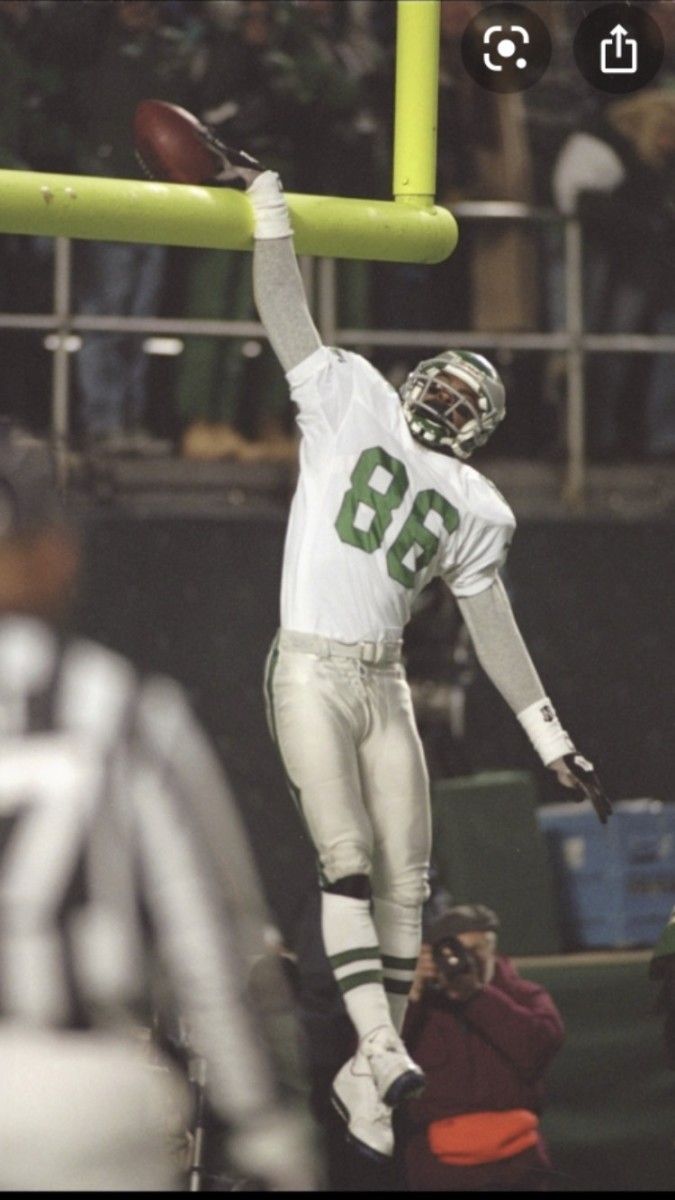
When Myla first picked up lacrosse, she began her career as a goalie because her team was in need of an extra goalie on the roster.
“I had never played before, so I was like, “you know what- I’m going to be a goalie. I’m just going to see what this is like,” Myla said. After a pause, she added, “it was not for me.”
Given her background as a runner, Myla was much more interested in playing a field position that would allow her to be more mobile. That being said, her brief experience as a goalkeeper gave her plenty of respect for the goalie position.
“Not that it would take this experience for me to respect goalies, but there’s so much pressure and there’s just an entirely different game when you’re a goalie.”
Although she had just begun playing the sport a year earlier, Myla was already playing up on the junior varsity high school team at The Baldwin School in eighth grade. She played varsity all through high school and was a team captain in her senior year.
The recruiting process for college lacrosse begins much earlier than most other sports. By the time Myla was beginning her freshman year of high school, she already had to think about what schools she wanted to consider for her collegiate career. The UVA women’s lacrosse program and head coach Julie Myers expressed interest in Myla and that interest was reciprocated.
“I really love the color orange and I was really looking for a school that would be both challenging academically and inspiring athletically,” Myla said and added that the size and environment of the school was an attraction as well. Coming from a graduating class of no more than 75 students at The Baldwin School, a small, private all-girls institution, Myla was looking to attend college at a larger school and one where there was a great deal of pride in athletics.
When both the Virginia men’s basketball and men’s lacrosse teams won NCAA national championships in Myla’s first year in 2019, she was further reassured that she had made a good choice. “It really demonstrated that I picked the right spot for me and [I am] just so grateful to be able to share it with Hailey,” Myla said.
For Hailey Barnett, her twin sister’s early commitment to UVA was an additional factor to consider as she pondered her own academic and athletic future, but ultimately, she found her own way to Charlottesville.
Hailey began rowing competitively in her freshman year at The Baldwin School and “fell in love with it.” After a decorated high school rowing career that included multiple second-place finishes at the National Scholastic Regatta and the Philadelphia City Championships in 2017, Hailey was deciding between four different colleges, including Virginia.
“One of the reasons [I chose Virginia] is obviously because my sister was there, but also the team,” Hailey said. “I had an official visit with the team and I loved the team culture. I really respected the coaching staff and my overall visit… was my favorite one. So, it was just the right fit.”
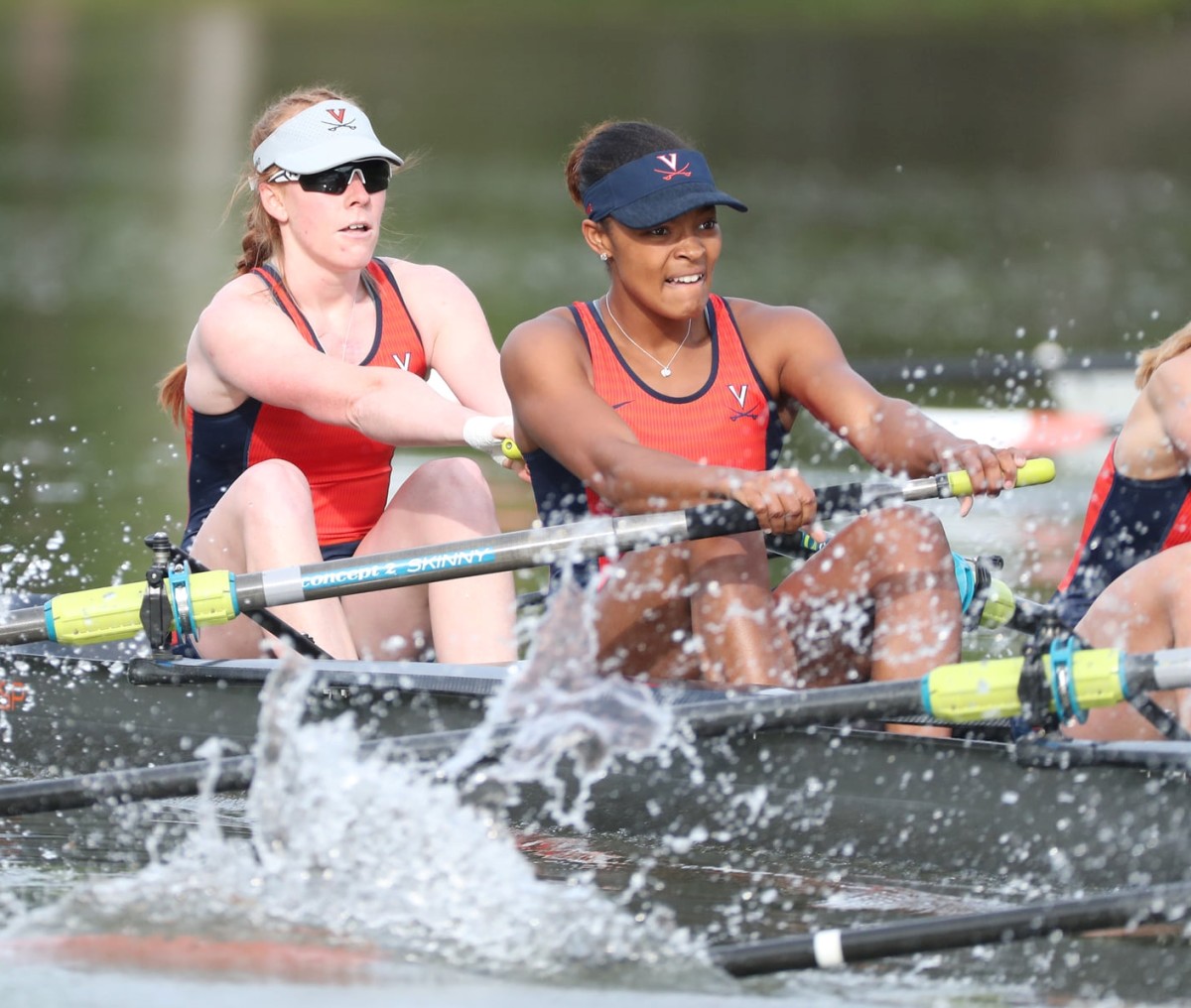
Myla having already committed to UVA also made it easier for Hailey to commit to Virginia because it would make it much more manageable for their parents to be able to attend both of their sporting events, as both lacrosse and rowing compete during the spring. Despite not having planned to attend the same school, it worked out quite well for the Barnett family that they could attend Myla’s lacrosse games and Hailey’s regattas in the same trip.
Although they are twins, Myla and Hailey are very different people. They play different sports and they have different majors - Hailey is a biology major with a minor in African-American and African studies and Myla is studying sociology with an entrepreneurship minor. They ended up at the same destination at the University of Virginia, but they took vastly different routes to get to Charlottesville.
One shared experience has united them throughout their careers: being Black athletes in non-traditional sports. At every level of their respective sports, Myla and Hailey each found that they were one of few, if any, people of color on their teams.
“Even in high school, we were the only one, if not maybe two others, max… girls of color who were playing our sport that we were playing at the time,” Myla said. “To have each other while we are just continuing to persist as athletes in our sport - twin athletes - I think it is definitely really helpful to just be with each other in that way too.”
Most athletes face a similar adjustment process when they first get to college. They are usually the best players on their high school teams, so when they first begin playing at the college level, it is a jarring realization that they are not the best anymore. For Myla and Hailey, there was the additional unspoken factor of being a very small demographic minority on the team.
“By the time I graduated [high school], I was the only one recruited at the DI level, so it didn't feel as competitive… and with the relationships with my teammates, I felt like I earned a lot of that respect just through them seeing me work hard and making really big plays in high school,” said Myla. “And so in that way, I was kind of like a big fish in a small pond. But when I came here, I was a very small fish.”
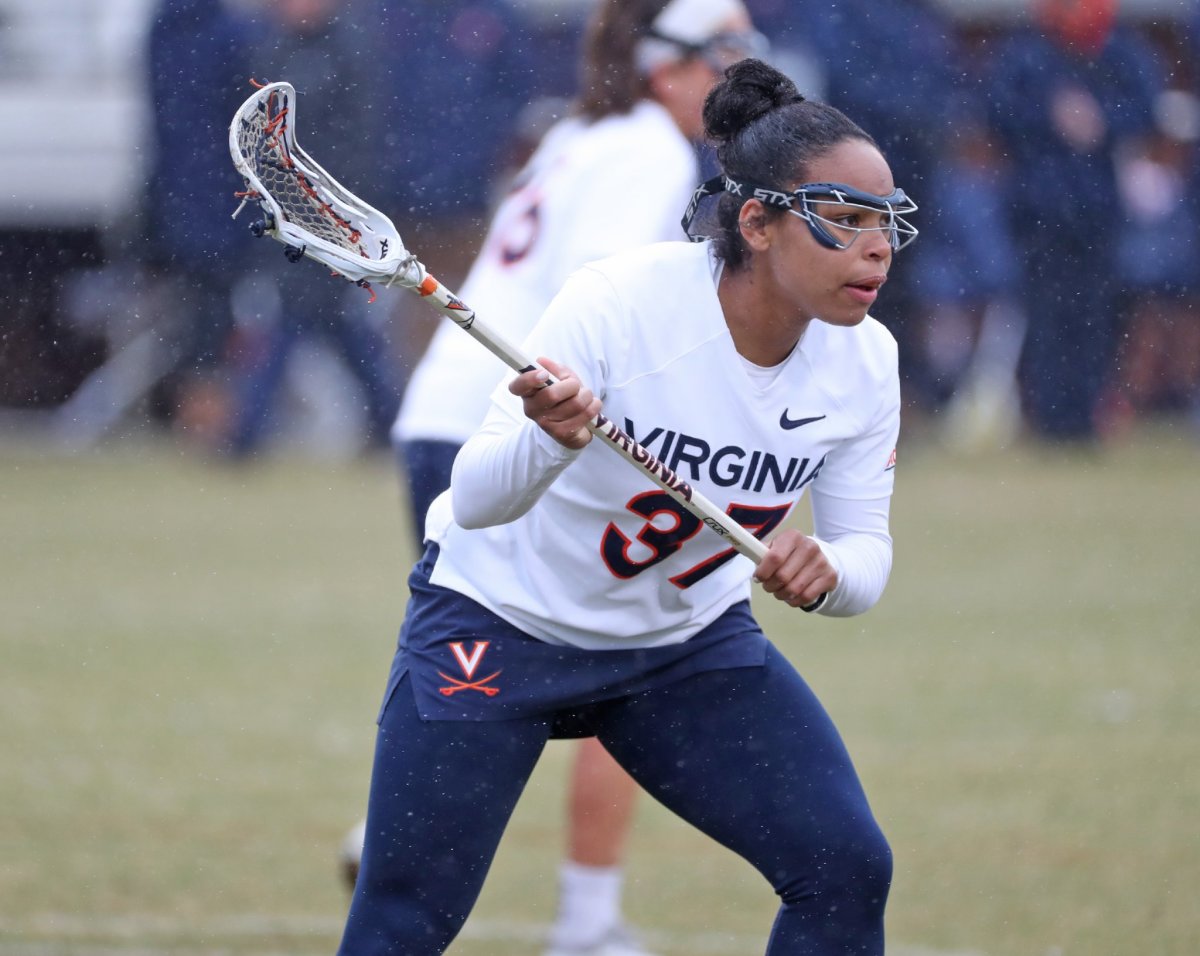
Myla never felt that she was treated differently or given alternate expectations. Instead, she was held to the same standard as every one of her teammates - to fully buy in and give 100% effort every day towards the team’s common goal of winning a championship.
“Just sharing that passion for wanting to win a national championship, that was really the glue that kind of helped me grow in that culture and grow in that environment,” she said. “And being a Black female athlete on the lacrosse team at Virginia, it's more than just being good. It's more than just catching every ball that's passed to you. It's so much more than that. There is a community behind winning. There’s a motto. There is just a culture that you do have to fit into just like any job or any group project. And so when I got to the team there was no formal announcement that I was a Black female lacrosse player. It was just like, “she's here to work hard, just like everybody else.”
Hailey had a similar experience when she first began practicing with the UVA rowing team.
“It's very humbling. It's like the best of the best of the best- you realize everyone around you is as good or definitely better than you,” Hailey said. “But, I feel like over the years I've kind of just gotten more comfortable with expressing myself on the team and I think I've kind of taken the experience as a good one because I get to form these relationships with people who don't look like me. And I get to share my experiences being one of the only Black girls in the rowing community and I think that's sort of a good thing that I get to be that voice for Black girls who want to take the same path.”
An NCAA study conducted in 2021 found that 84% of women’s lacrosse players are white and just 3% of women’s lacrosse players are Black. The same study found that 77% of women’s rowing athletes are white, while only 2% are Black.
With such little Black representation in their sports, Myla and Hailey have had to be their own role models, blazing their own trail to be successful athletes in the hopes that they can inspire the next generation of Black athletes to follow their lead. Their parents occasionally compare them to Venus and Serena Williams.
“Sometimes our parents think of us a little like we’re breaking the barriers similar to the way the Williams sisters did,” Myla said. “We watched the King Richard movie and that was just so inspiring to see them persist through the numerous hurdles that they faced… There are models that we did look up to like Serena and Venus Williams. We are definitely standing on shoulders right now, but we just hope that more people can stand on our shoulders.”
Hailey agrees that her experience as a woman of color playing a historically-white sport is as much an opportunity as it is a challenge.
“I think of it as a good thing because at the end of the day, it makes my relationship with the team stronger and I get to express my passions about social justice and just about expanding and diversifying the sport of rowing,” Hailey said. “I’ve encouraged my coach and my teammates to be more cognizant of racism in America. So I don’t see it as much as a setback. I see it like an opportunity to be the voice and share those thoughts with my teammates who don’t hear it that often.”
That opportunity to be a voice transformed into a responsibility in the summer of 2020 during the peak of the racial protests in the United States. Myla and Hailey created an Instagram account called “Athletes for Black Lives Matter” to serve as a platform where athletes from UVA and a host of other schools as well as professional athletes and coaches could post videos expressing their support for the Black Lives Matter movement.
“Over the course of history, we’ve seen Black athletes and athletes of all colors use their platform to spread better awareness and advocate for things that they’re passionate about and so we saw this as a perfect time to provide that platform for athletes who want to tell their followers that they support the Black Lives Matter movement and they are for the equality of the races,” Hailey said.
The account quickly gained traction, amassing over 2,000 followers in just a few weeks. It began with a video of Myla and Hailey introducing the platform and their father made a video for the account’s second post. Dozens of athletes and coaches sent in videos, including NFL linebacker Charles Snowden, NBA basketball player Kyle Guy, and UVA men’s lacrosse coach Lars Tiffany.
Myla and Hailey still feel as though their most important work is serving as an example to the next generation of Black athletes, showing them that it is possible to become a scholarship athlete at very successful programs at an excellent academic institution through these sports, even as Black female athletes. Furthermore, Myla and Hailey have demonstrated that it is possible to have extraordinary collegiate careers at UVA, both athletically and academically.
Both Myla and Hailey have made multiple appearances on the ACC and NCAA honor roll. In Myla’s career, the UVA women’s lacrosse team has made trips to the NCAA Tournament and won at least one postseason game in 2019 and 2021 (there was no postseason in 2020). This season, the Cavaliers are ranked No. 11 in the country and have started the season 2-0.
Hailey helped UVA’s second Varsity Eight rowing team win the program's 11th ACC Championship as well as a 5th-place finish at the NCAA Championships in 2021. Virginia is ranked No. 5 in the preseason poll with the start of the 2022 season right around the corner.
“I know that young, Black, aspiring lacrosse players are looking at me and saying, “Oh wow, this is what I can do,” especially if they see me doing it,” Myla said. “And growing up, I didn’t really see that. I just took a chance and my coach took a chance on me as well and I’m so grateful for that.”
For examples of Black student-athlete excellence, look no further than Myla and Hailey Barnett.
